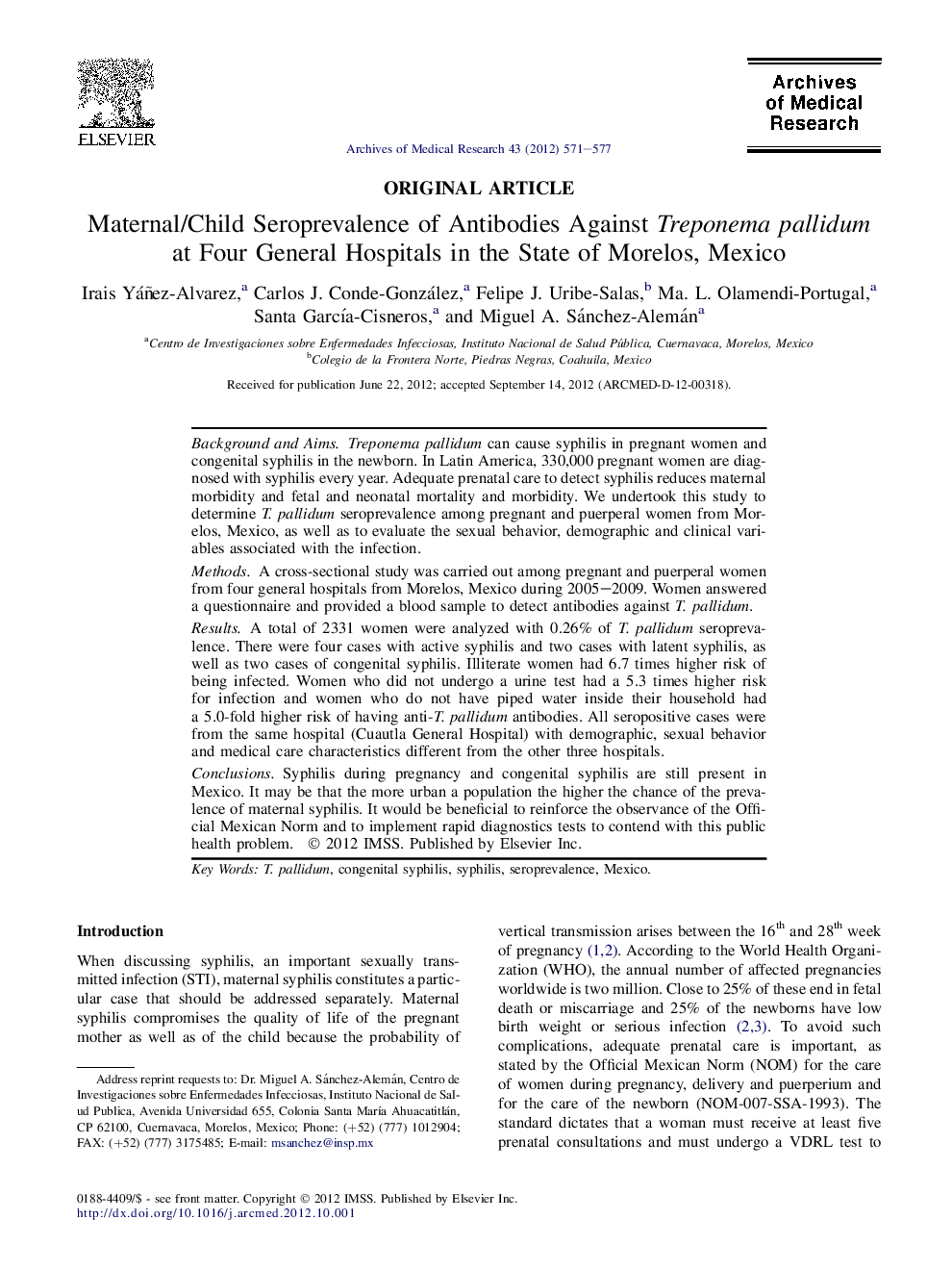| Article ID | Journal | Published Year | Pages | File Type |
|---|---|---|---|---|
| 3446720 | Archives of Medical Research | 2012 | 7 Pages |
Background and AimsTreponema pallidum can cause syphilis in pregnant women and congenital syphilis in the newborn. In Latin America, 330,000 pregnant women are diagnosed with syphilis every year. Adequate prenatal care to detect syphilis reduces maternal morbidity and fetal and neonatal mortality and morbidity. We undertook this study to determine T. pallidum seroprevalence among pregnant and puerperal women from Morelos, Mexico, as well as to evaluate the sexual behavior, demographic and clinical variables associated with the infection.MethodsA cross-sectional study was carried out among pregnant and puerperal women from four general hospitals from Morelos, Mexico during 2005–2009. Women answered a questionnaire and provided a blood sample to detect antibodies against T. pallidum.ResultsA total of 2331 women were analyzed with 0.26% of T. pallidum seroprevalence. There were four cases with active syphilis and two cases with latent syphilis, as well as two cases of congenital syphilis. Illiterate women had 6.7 times higher risk of being infected. Women who did not undergo a urine test had a 5.3 times higher risk for infection and women who do not have piped water inside their household had a 5.0-fold higher risk of having anti-T. pallidum antibodies. All seropositive cases were from the same hospital (Cuautla General Hospital) with demographic, sexual behavior and medical care characteristics different from the other three hospitals.ConclusionsSyphilis during pregnancy and congenital syphilis are still present in Mexico. It may be that the more urban a population the higher the chance of the prevalence of maternal syphilis. It would be beneficial to reinforce the observance of the Official Mexican Norm and to implement rapid diagnostics tests to contend with this public health problem.
